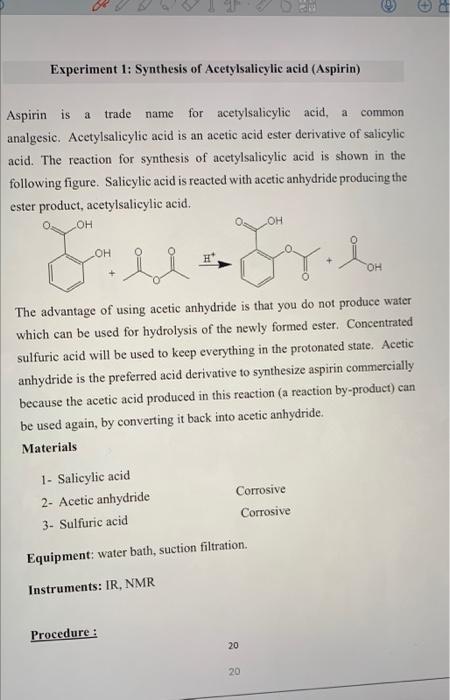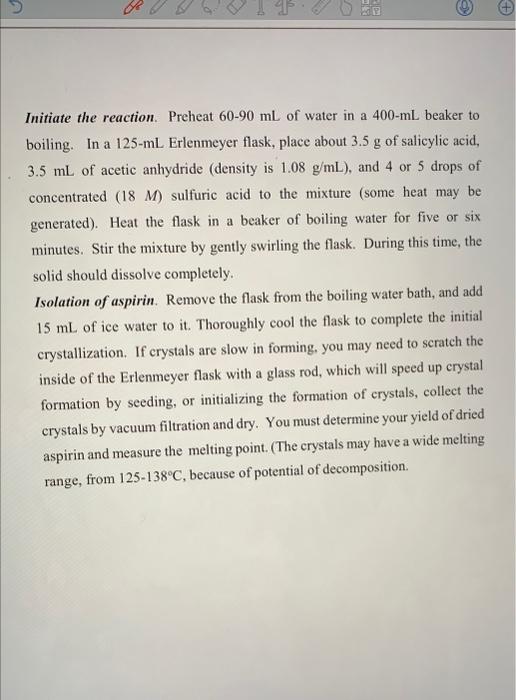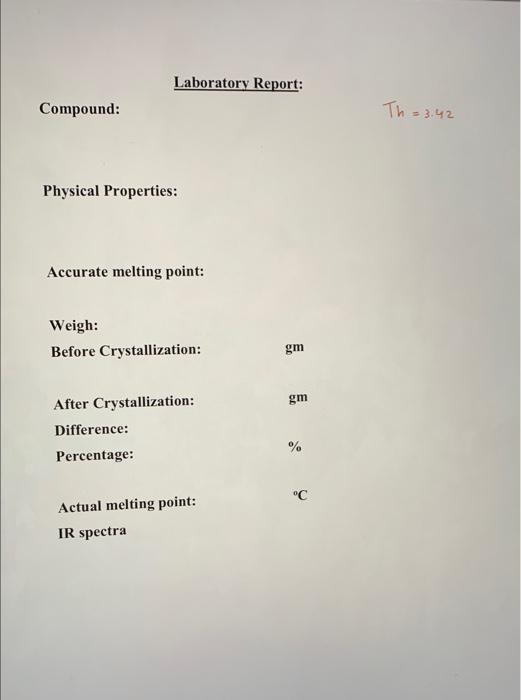Answered step by step
Verified Expert Solution
Question
1 Approved Answer
Please help me, given the value of Th=3.42 only Aspirin is a trade name for acetylsalicylic acid, a common analgesic. Acetylsalicylic acid is an acetic
Please help me, given the value of Th=3.42 only 


Aspirin is a trade name for acetylsalicylic acid, a common analgesic. Acetylsalicylic acid is an acetic acid ester derivative of salicylic acid. The reaction for synthesis of acetylsalicylic acid is shown in the following figure. Salicylic acid is reacted with acetic anhydride producing the ester product, acetylsalicylic acid. H+ The advantage of using acetic anhydride is that you do not produce water which can be used for hydrolysis of the newly formed ester. Concentrated sulfuric acid will be used to keep everything in the protonated state. Acetic anhydride is the preferred acid derivative to synthesize aspirin commercially because the acetic acid produced in this reaction (a reaction by-product) can be used again, by converting it back into acetic anhydride. Materials Initiate the reaction. Preheat 6090mL of water in a 400mL beaker to boiling. In a 125-mL Erlenmeyer flask, place about 3.5g of salicylic acid, 3.5mL of acetic anhydride (density is 1.08g/mL ), and 4 or 5 drops of concentrated (18M) sulfuric acid to the mixture (some heat may be generated). Heat the flask in a beaker of boiling water for five or six minutes. Stir the mixture by gently swirling the flask. During this time, the solid should dissolve completely. Isolation of aspirin. Remove the flask from the boiling water bath, and add 15mL of ice water to it. Thoroughly cool the flask to complete the initial crystallization. If crystals are slow in forming, you may need to scratch the inside of the Erlenmeyer flask with a glass rod, which will speed up crystal formation by seeding, or initializing the formation of crystals, collect the crystals by vacuum filtration and dry. You must determine your yield of dried aspirin and measure the melting point. (The crystals may have a wide melting range, from 125138C, because of potential of decomposition. Compound: Th=3.42 Physical Properties: Accurate melting point 


Step by Step Solution
There are 3 Steps involved in it
Step: 1

Get Instant Access to Expert-Tailored Solutions
See step-by-step solutions with expert insights and AI powered tools for academic success
Step: 2

Step: 3

Ace Your Homework with AI
Get the answers you need in no time with our AI-driven, step-by-step assistance
Get Started


